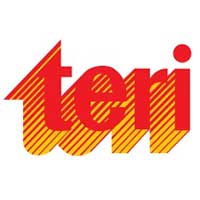Indian Industry leaders sign up for 'Near Zero Emissions' by 2050

Facilitated by TERI, six Indian CEOs committed to work jointly on setting Indian industry's decarbonization pathway leading to 'Near Zero Emissions' by 2050.
New Delhi, September 24: A coalition of leading market players from Indian industry including Siemens Energy India, Thermax, Dalmia Cement (Bharat) Ltd, Shell Group of Companies India, Hindalco Industries and Tata Consulting Engineers Ltd, signed up an 'Industry Charter for Near Zero Emissions by 2050' in a virtual event at the ongoing Climate Week NYC.
As founding Signatories of the Charter, these industries committed to -
- Enhancing energy efficiency, renewable energy, circular economy across member companies and supply chains
- Support the transition of India's COP 21 commitment of carbon intensity reduction to absolute carbon emissions reduction
- Undertake carbon sequestration efforts if needed
- Tap synergies to build market and policy perspectives on decarbonisation
- Set reporting indicators and voluntary targets to enable tracking of corporate goals on decarbonisation pathway
- Create excitement and vigour among peers through documentation and wide outreach of best practices, technology or business models towards decarbonisation
"Actions taken now will determine the outcome of 'near zero emissions by 2050'. After our assessments for electricity sector transition in India, we are excited to take forward the industry transition agenda. This Charter is an important step from Indian industry to voluntarily commit themself to decarbonisation measures and to work together in key thematic areas that can make a 'zero carbon' future, a reality for India," said Dr Ajay Mathur, Director General, TERI. He informed that TERI will serve as the Secretariat of this industry coalition.
The Charter Signatories unanimously expressed their intent to make their companies exemplars of low or zero carbon technology solutions within their sectors, and gradually bring more heavy industry sectors into the fold of the Charter.
The presence of 'hard to abate' sectors, namely cement and aluminium, in the Industry Charter is significant as these sectors would require to shift to new breakthrough process technologies that use 100 percent renewable energy and feedstock. "We are committed to play a leadership role by our actions and engagements towards achieving our carbon negative commitment by 2040", said Mr Mahendra Singhi, MD & CEO, Dalmia Cement (Bharat) Limited. Highlighting his company's efforts to reduce their carbon footprint and introduce renewable energy in their power mix, Mr Satish Pai, MD & CEO, Hindalco Industries, said, "We believe Hindalco can play a significant role in getting India's carbon emissions down. We are very happy and proud to be a part of this industry charter that will work towards near zero carbon emissions by 2050.
"On a company level, we will become carbon neutral by 2030 and we'll decarbonise all of our facilities", said Mr Gerd Deusser, CEO, Siemens Energy India. He highlighted Siemens commitment to providing innovative technologies and solutions in key sectors of energy, industry and mobility.
"We firmly believe that some of the best ideas come from working together in collaborative forums such as this one and we hope to contribute our global experience on best practices", added Mr Nitin Prasad, Chairman, Shell Group of Companies, India.
Highlighting that the industry coalition will work towards demystifying the concept of net zero emissions for industry practitioners in India, Mr Amit Sharma, MD & CEO, Tata Consulting Engineers Ltd, said this is an opportune moment for 'a positive disruption across all sectors and value chains to think differently, keeping in mind sustainability, circular economy and green with an aim to create a better and safer tomorrow.'
As next steps, TERI plans to facilitate discussions among the Charter Signatories to narrow down upon key thematic areas that will be collectively pursued by the industry coalition. Initial proposals and ideas include working on integration of renewables in the grid, electric mobility and green hydrogen technologies.
For more information on the Industry Charter for Near Zero Emissions by 2050, please visit this page.
About TERI
The Energy and Resources Institute (TERI) is an independent, multi-dimensional organisation, with capabilities in research, policy, consultancy and implementation. It has pioneered conversations and action in the energy, environment, climate change, and sustainability space for over four decades.
The institute's research and research-based solutions have had a transformative impact on industry and communities. Headquartered in New Delhi, it has regional centres and campuses in Gurugram, Bengaluru, Guwahati, Mumbai, Panaji, and Nainital, supported by a multi-disciplinary team of scientists, sociologists, economists and engineers, and state-of-the-art infrastructure.
For further information, contact:
TERI – Aastha Manocha: aastha.manocha@teri.res.in
Edelman – Rakhi Aurora: rakhi.aurora@edelman.com

